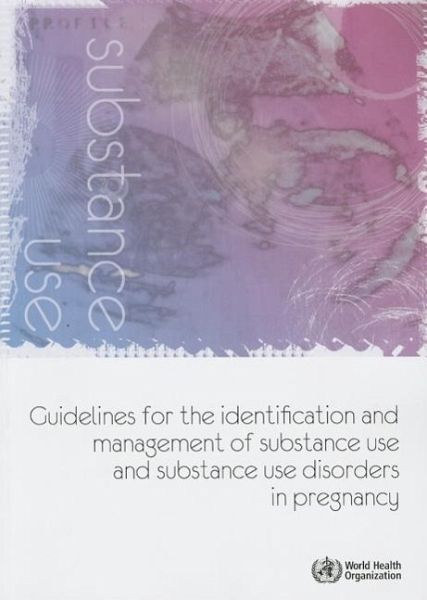
Guidelines for the Identification and Management of Substance Use and Substance Use Disorders in Pregnancy
Versandkostenfrei!
Nicht lieferbar
Use of alcohol, illicit drugs and other psychoactive substances during pregnancy can lead to multiple health and social problems for both mother and child. Use of alcohol during pregnancy can lead to fetal alcohol syndrome and other harms such as spontaneous abortion, stillbirth, low birth weight, prematurity and birth defects. Dependence on alcohol and other drugs can also severely impair an individual's functioning as a parent, spouse or partner and instigate and trigger gender-based and domestic violence, thus significantly affecting the physical, mental and emotional development of childre...
Use of alcohol, illicit drugs and other psychoactive substances during pregnancy can lead to multiple health and social problems for both mother and child. Use of alcohol during pregnancy can lead to fetal alcohol syndrome and other harms such as spontaneous abortion, stillbirth, low birth weight, prematurity and birth defects. Dependence on alcohol and other drugs can also severely impair an individual's functioning as a parent, spouse or partner and instigate and trigger gender-based and domestic violence, thus significantly affecting the physical, mental and emotional development of children. Pregnancy may be an opportunity for women, their partners and other people living in their household to change their patterns of alcohol and other substance use. Health workers providing care for women with substance use disorders during pregnancy need to understand the complexity of the woman's social, mental and physical problems in order to provide appropriate advice and support throughout pregnancy and the postpartum period. These guidelines have been developed to enable professionals to assist women who are pregnant, or have recently had a child, and who use alcohol or drugs or who have a substance use disorder, to achieve healthy outcomes for themselves and their fetus or infant. They have been developed in response to requests from organizations, institutions and individuals for technical guidance on the identification and management of alcohol, and other substance use and substance use disorders in pregnant women. They were developed in tandem with the WHO recommendations for the prevention and management of tobacco use and second-hand smoke exposure in pregnancy. There are currently no global guidelines providing evidence-based recommendations for identifying and managing substance use and substance use disorders in pregnancy. While several high income countries have developed national guidelines covering these issues, low and middle income countries currently lack such guidance. This guideline has been primarily written for health care providers managing women from conception to birth and during the postnatal period, and their infants.



